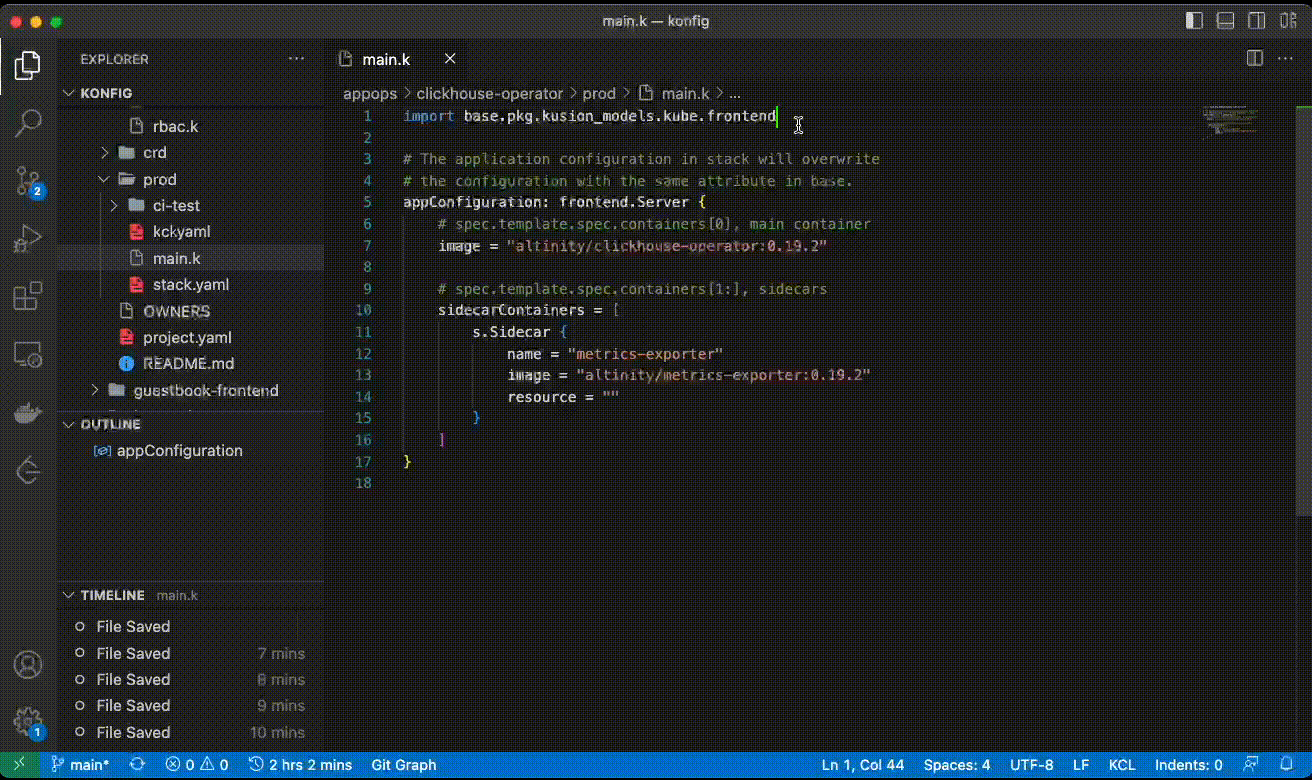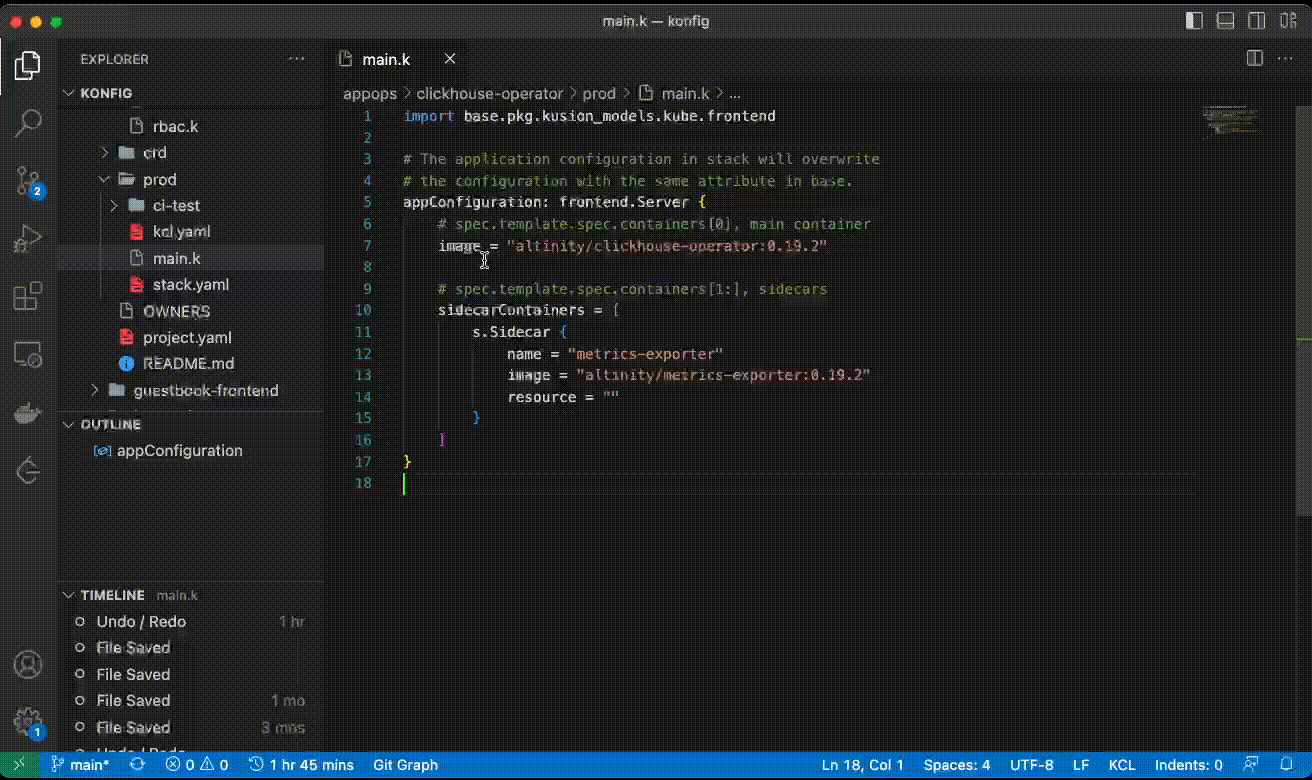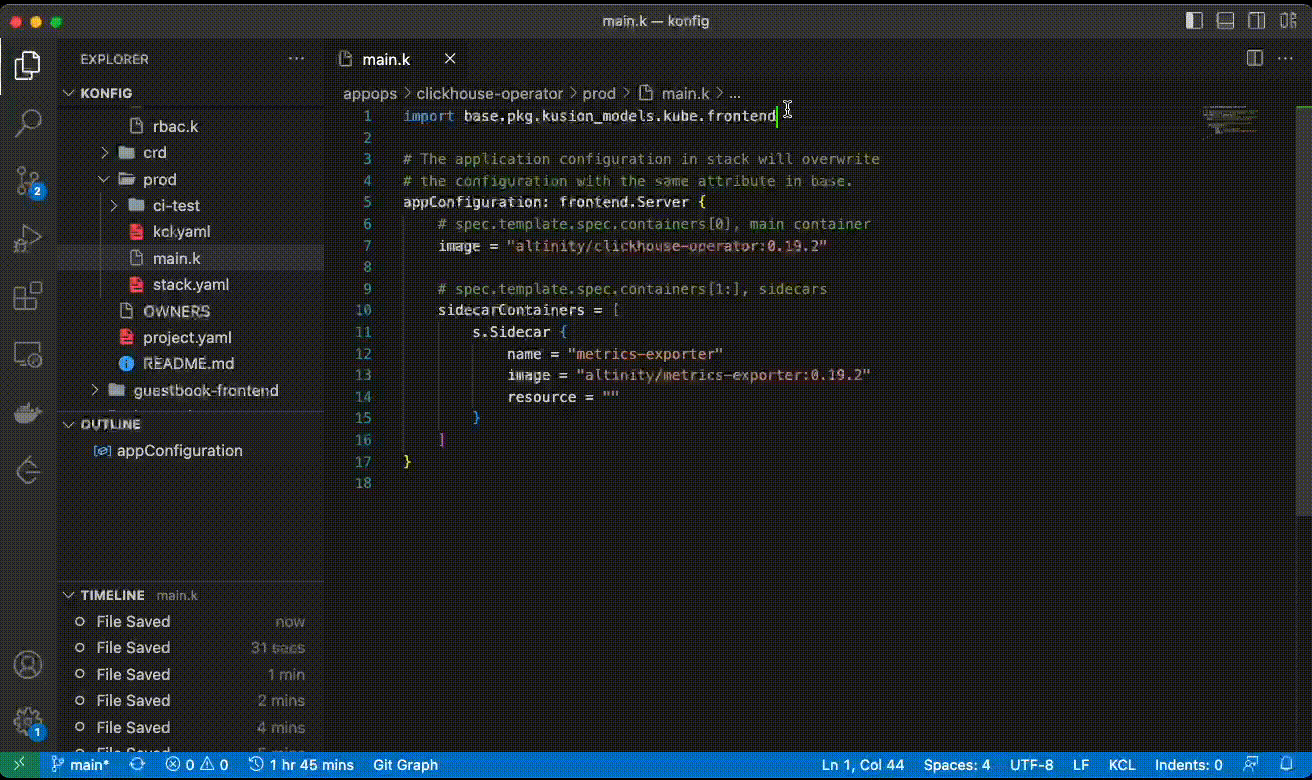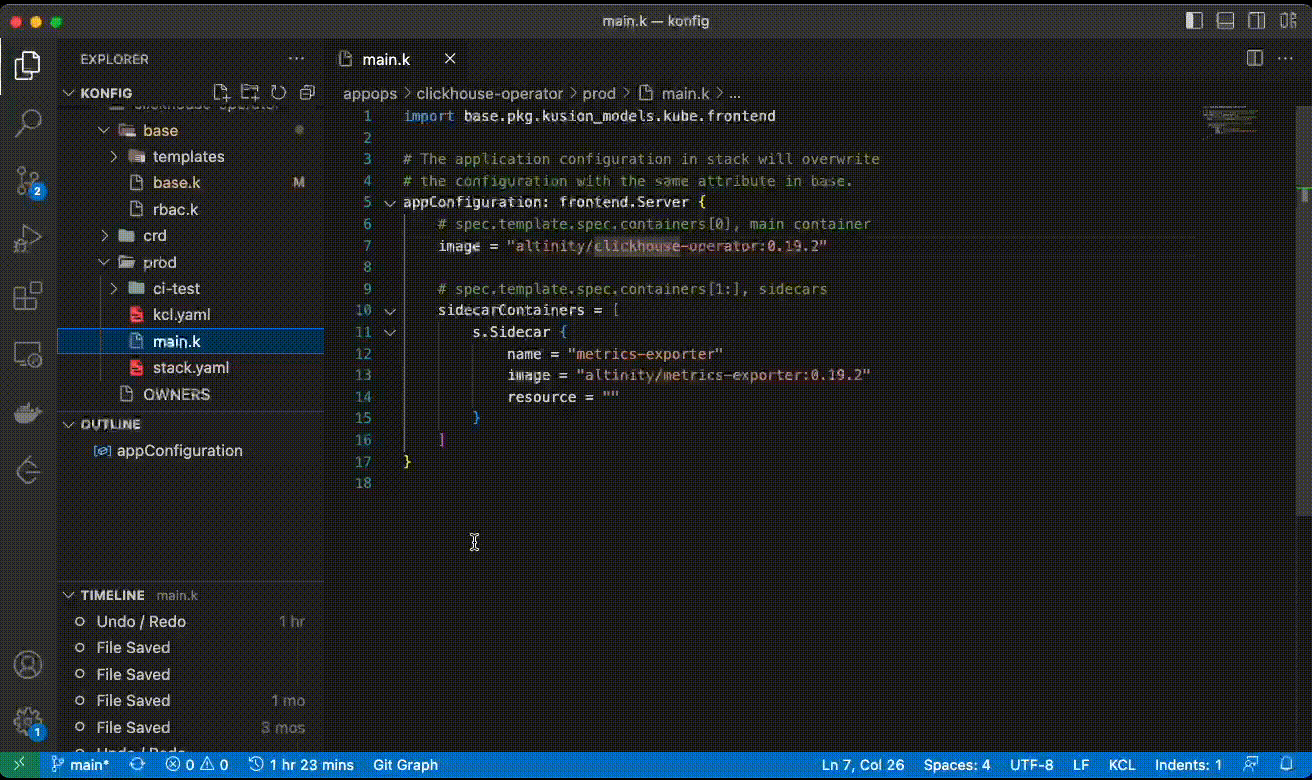What is KCL
KCL is an open-source, constraint-based record and functional language. KCL improves the writing of numerous complex configurations, such as cloud-native scenarios, through its mature programming language technology and practice. It is dedicated to building better modularity, scalability, and stability around configurations, simpler logic writing, faster automation, and great built-in or API-driven integrations.
What is KCL Go SDK?
kclvm is a runtime library for the KCL language that provides a programming interface for interacting with the KCL compiler. It is a client library that can be used to perform various operations on KCL source code such as execution and formatting. KCL Go SDK is a Go language wrapper for kclvm that provides an SDK for KCL language integration in cloud-native environments.
The current version of KCL Go SDK is built on top of the kclvm json2 RPC API, which means that it uses the same API as other language KCL clients to interact with KCL source code. The way it works is similar to other language KCL SDKs, but it provides a more user-friendly Go language style wrapper.
What problems does the new version of KCL Go SDK solve?
KCL is closely related to the cloud-native domain as a configuration language, while on the other hand, Go has become the de facto standard programming language for cloud-native domains. In this context, the development of a Go SDK for the KCL compiler to directly interact with Go was necessary, which is the reason for the creation of KCL Go SDK.
The initial version of the KCL compiler and runtime were written in Python, and the runtime for the first version of the KCL language had a lot of room for improvement in terms of performance and security due to the performance issues and characteristics of the dynamic nature of the Python language. In light of security and efficiency considerations, later versions of the KCL compiler were written in the Rust programming language. As a result, the new version of KCL Go SDK is based on rust-implemented kclvm packaging, eliminating Python dependencies, simplifying installation, and optimizing the user experience.
Quickly experience KCL Go SDK via the command line
KCL Go SDK provides a built-in command line tool named kcl-go ,which supports one-click installation through go install. The local Go version must be 1.18+ and the complete CGO toolchain is required.
Simply run:
go install kusionstack.io/kclvm-go/cmds/kcl-go@latest
Create a new KCL source file hello.k
apiVersion = "apps/v1"
kind = "Deployment"
metadata = {
name = "nginx"
labels.app = "nginx"
}
spec = {
replicas = 3
selector.matchLabels = metadata.labels
template.metadata.labels = metadata.labels
template.spec.containers = [
{
name = metadata.name
image = "${metadata.name}:1.14.2"
ports = [{ containerPort = 80 }]
}
]
}
And then execute the KCL directly from the command line with:
kcl-go run ./hello.k
The output is
apiVersion: apps/v1
kind: Deployment
metadata:
name: nginx
labels:
app: nginx
spec:
replicas: 3
selector:
matchLabels:
app: nginx
template:
metadata:
labels:
app: nginx
spec:
containers:
- name: nginx
image: "nginx:1.14.2"
ports:
- containerPort: 80
How to integrate KCL with Go code?
Here is an example of how to integrate KCL into your Go program. Using the hello.k file from the previous example, construct the following main.go code:
package main
import (
"fmt"
"kusionstack.io/kclvm-go"
)
func main() {
result := kclvm.MustRun("./hello.k").GetRawYamlResult()
fmt.Println(result)
}
kclvm.MustRun("./hello.k").GetRawYamlResult()runs the corresponding KCL source filefmt.Println(result)prints the result of the run
The local environment requires Go version 1.18+ and a complete CGO toolchain. Add the KCL Go SDK dependency to this command line tool by running:
go get kusionstack.io/kclvm-go@main
The following command runs the Go program:
go run main.go
The output is
apiVersion: apps/v1
kind: Deployment
metadata:
name: nginx
labels:
app: nginx
spec:
replicas: 3
selector:
matchLabels:
app: nginx
template:
metadata:
labels:
app: nginx
spec:
containers:
- name: nginx
image: "nginx:1.14.2"
ports:
- containerPort: 80
Conclusion
Through the version change, we have removed Python dependencies and switched to a more efficient Rust runtime. The article briefly demonstrates how to use the kcl-go command line tool to execute KCL source code and how to integrate KCL into your Go program.
In addition to compiling and running KCL source code, the KCL Go SDK provides a variety of features to facilitate KCL integration in Go, including:
- KCL static error analysis (lint and format)
- KCL dependency analysis
- Go struct and KCL Schema mutual conversion
Additional Resources
Thank all KCL users for their valuable feedback and suggestions during this version release. For more resources, please refer to:
See the community for ways to join us. 👏👏👏



